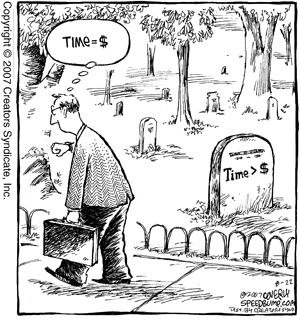Hi,
I want to retire - yesterday. I am 61. I have 1.2m in 401k, savings etc. About 65/35 stocks/bonds. FireCalc shows I can withdraw 70k/year with 100% success. This is more than I need for expenses. I am really afraid of giving up 125K/yr salary. I am afraid savings will fall as fast as they rose.
My questions are: how trustworthy is the calculation provided by FireCalc? Is a financial advisor at .75 - 1 % worth it? How has your experience been giving up steady income for probable income? Any advice on withdrawal strategies? For example, should I sell stock I am overweight on and keep household income below 80k to avoid capital gains? They have been high performers and are expected to continue to be so. Or sell bonds and rebalance stock funds to bond funds?
I know... lots of questions. My mind has been spinning for months. Appreciate any thoughts.
OP, Retired at 50 and am very thankful you want to work another year to pay into SS for the rest of us

On a more serious note, the only way I could get my emotions managed to do this is to realize you are switching your investments from capital gains to income generation. A bucket approach helps:
1. Have 2-5 years of expenses in TBills/Cash/CDs (zero risk investments). Then you know you are safe for 2-5 years. Conversely if you screw up the investments you have 2-5 years to find a job.
2. Use very low risk investments to fill out the remainder of a 10 year time period. 100% Investment grade bonds, or 20% stocks/80% investment grade bonds. Think safe.
3. You can go more aggressive (not crazy) with the rest. 80/20 or 70/30 or whatever you feel comfortable with.
4. Social Security is a powerful annuity - start your withdrawals as appropriate for your situation.
5. Try to set aside a reserve for unexpected disasters, at least 10% preferably 20% of the total. This can be in a generic equity income fund or whatever you have for your long term mix.
6. Check your medical and liability insurance needs. Umbrella liability policies are cheap. Of course home and auto need to be there too. The most likely loss scenario is the old retiree hitting someone and getting sued. I could happen to anyone.
7. It's a good idea to have a concrete plan in place in case you are suddenly laid up for 15 years with a stroke/debilitating illness. Who will take care of your affairs? If you have a spouse or kids they tend to be the default. It's much easier to have that conversation starting with "I hopefully won't need this for decades but here's what is needed if something bad happens". If you end up in pain, setting these things up later will be very difficult for you.
Then make a detailed report of the last 3 years of everything you have spent, categorized. Do you see any trends? The numbers will be what you end up spending going forward, forget the saving money in retirement fiction unless you are making major life changes like moving to a smaller house etc.
If you do the above with integrity then you'll *know* you can go for 10 years on what you have, and have a pretty good idea you can carry on afterward. The point is for you to internalize this belief by "proving" it to yourself. That will help you ignore market ups and downs and carry on.
If you are one that thinks it's too much work to do this or have no idea what you spent in the last 3 years, then spending the money for a responsible financial helper is probably money well spent. [In that case, someone who wears fancy business clothes will prove it to you. ?? ]
About half of us are not capable to do the tasks described above. It's OK, no judgement here-- just know who you are and take appropriate action. Some of the happiest retirees out there are the people who are financially clueless but have a pension and social security, and just fill up their wallets every week and spend it down. Bottom line, what will make you happiest?

